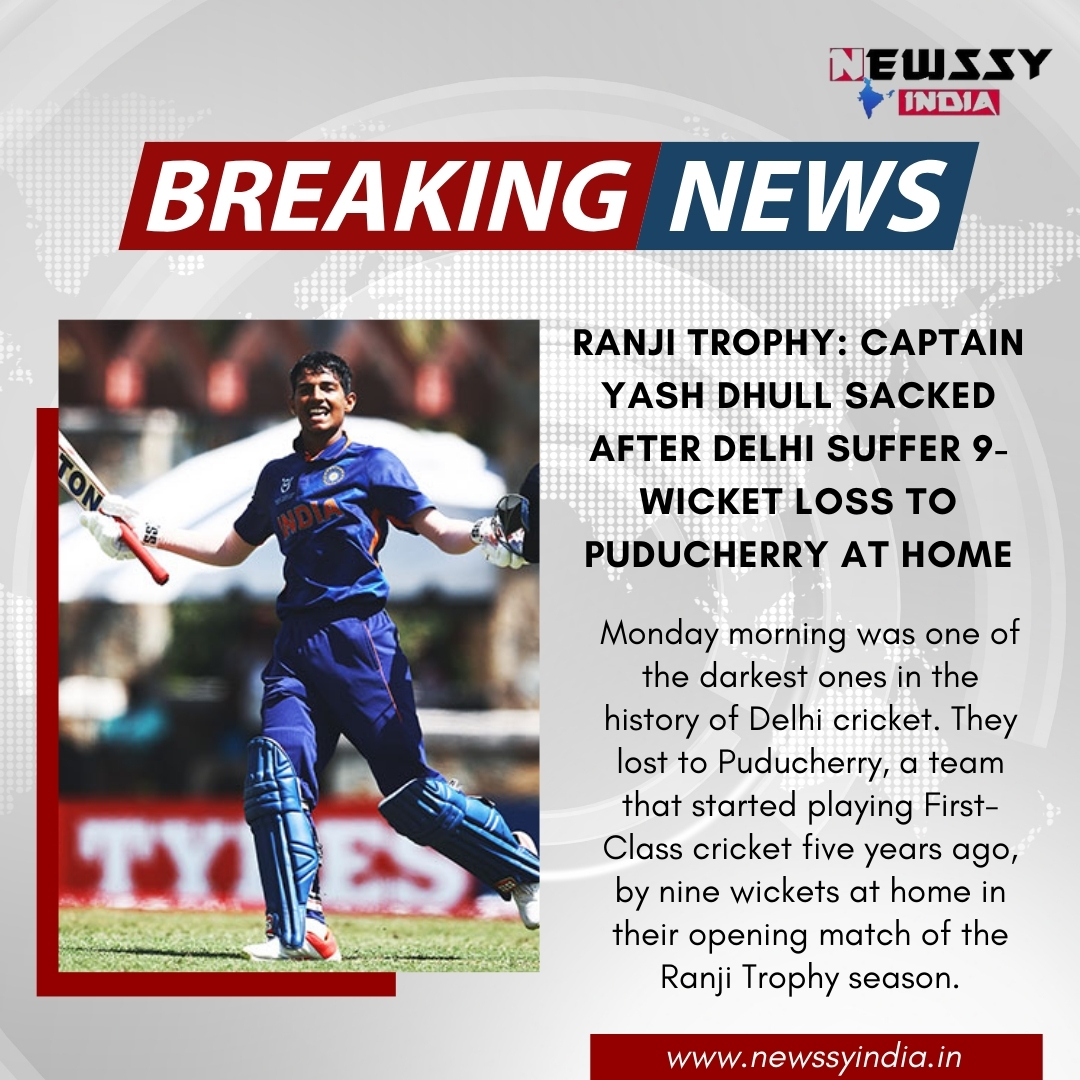Yash Dhull, the young turk who led India to U-19 World Cup glory in 2022, finds himself in unfamiliar territory – stripped of the Delhi captaincy after a humiliating nine-wicket defeat to Puducherry in the Ranji Trophy opener. This swift fall from grace, barely hours after the final Puducherry wicket tumbled at the Arun Jaitley Stadium, has sparked a torrent of reactions, questions, and introspection within the Delhi cricketing fraternity.
Dhull’s appointment as captain in December 2022 was viewed as a bold, forward-thinking move, injecting youthful energy into a Delhi outfit thirsting for Ranji Trophy glory. His maiden first-class season, with three centuries and an aggregate of 479 runs, offered a glimpse of a prodigious talent destined for greatness.
However, the 21-year-old’s batting form dipped alarmingly in the ensuing season. With a meagre 270 runs in ten innings, doubts began to simmer around his leadership credentials, particularly his vulnerability against swinging deliveries. The Puducherry debacle, where he managed a paltry 25 runs across two innings, served as the tipping point.
Delhi’s cricketing brass, in a swift and controversial move, wielded the axe. Senior batter Himmat Singh was handed the reins, tasked with navigating the ship through the choppy waters of the Ranji Trophy. The official explanation from the DDCA highlighted Dhull’s form slump and the desire to free him from captaincy pressures to solely focus on his batting.
This decision, however, has ignited divergent opinions. Supporters of Dhull point to his tender age and argue that a single bad game shouldn’t erase his leadership potential. They cite examples of established captains facing temporary form dips without facing removal. They question the logic of burdening a young talent with the dual responsibility of captaincy and performance during a crucial juncture in his career.
On the other hand, proponents of the decision argue that captaincy carries substantial weight, and its impact on individual form cannot be disregarded. They believe that relieving Dhull of the captaincy frees him to rediscover his batting prowess. They also emphasize the need for strong leadership and tactical acumen to steer Delhi back to Ranji Trophy dominance, potentially justifying Himmat Singh’s appointment based on his experience.
Dhull’s removal raises broader questions about leadership development in domestic cricket. Should promising young talents be thrust into captaincy roles too early at the expense of individual growth? Is there a more nuanced approach to handling form slumps and leadership responsibilities? These are important conversations that need to be held within the cricketing ecosystem to foster a supportive environment for future leaders.
Yash Dhull’s story isn’t over. Whether he bounces back as a batsman or reclaims the captaincy at a later stage, this Ranji Trophy saga serves as a valuable learning experience. It underscores the delicate balance between individual brilliance and leadership acumen, and the need for a holistic approach to nurturing talent on the path to cricketing glory.
This article can be further developed by exploring the following angles:
Dhull’s perspective: Conduct an interview or analyze existing statements to understand his reaction to the decision and his future plans.
In-depth analysis of his form slump: Delve into technical aspects of his batting, external factors, and potential solutions.
Comparative analysis of similar captaincy cases: Examine historical instances of young captains facing form dips and leadership challenges.
Expert opinions: Seek perspectives from former players, coaches, and commentators on the decision and its implications.
Long-term impact: Assess the potential consequences of this incident on Dhull’s career and the future of Delhi cricket








